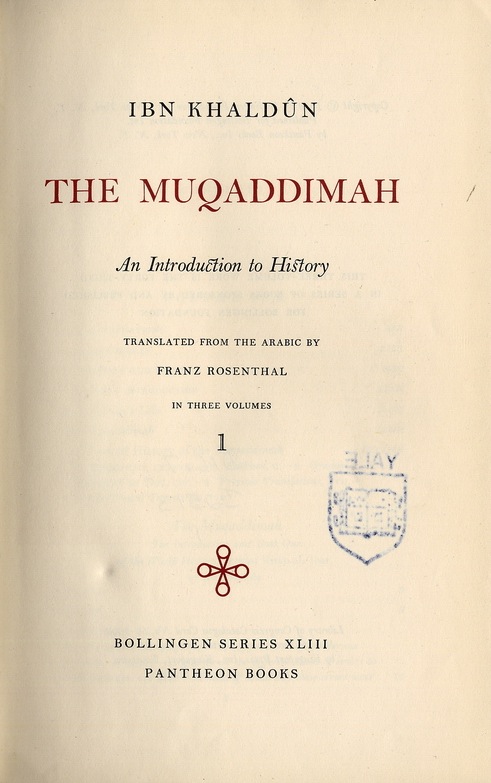
In a notice on Jihad Watch some four years ago, Spencer alerts the reader to the normative extremism of Ibn-Khaldun, the great 14th century Muslim version of a Thomas Aquinas whose name is titular for the sumptuously accredited university "Chair" (at American University in Washington, D.C.) on which a certain Muslim academic, Prof. Akbar Ahmed, seats his prodigously moderate behind and from which, when he's not doing supposedly scholarly work, he propagandizes ex cathedra about how Islam is peachy keen and critics of Islam are "Islamophobic".
Spencer quotes from Ibn-Khaldun's great work the Muqaddimah --
“in the Muslim community, the holy war is a religious duty, because of the universalism of the Muslim mission and (the obligation to) convert everybody to Islam either by persuasion or by force.”
Another telling quote from the Muqaddimah which Spencer did not quote:
“The other [i.e., non-Muslim] religious groups did not have a universal mission, and the holy war was not a religious duty to them, save only for purposes of defense.”
This (in conjunction with the quote Spencer provided) is as direct an avowal of the fundamentally offensive nature of Islamic war as any -- and a surprising admission of the uniqueness of Islam in that regard.
This is something no Islamopologist in our time -- including, no doubt and with supreme irony, Prof. Akbar Ahmed, “Ibn Khaldun Chair of Islamic Studies at American University in Washington, D.C,” himself -- would ever dare avow, lest the much stronger Infidel Enemy in whose midst the good professor plies his trade wise up to the ultimate goal of his Islam before the time is ripe.
The full quote (from this scholarly translation available as a pdf, pp. 408-409):
In the Muslim community, the holy war is a religious duty, because of the universalism of the (Muslim) mission and (the obligation to) convert everybody to Islam either by persuasion or by force. Therefore, caliphate and royal authority are united in (Islam), so that the person in charge can devote the available strength to both of them at the same time.
The other religious groups did not have a universal mission, and the holy war was not a religious duty to them, save only for purposes of defense. It has thus come about that the person in charge of religious affairs in (other religious groups) is not concerned with power politics at all. (Among them,) royal authority comes to those who have it, by accident and in some way that has nothing to do with religion. It comes to them as the necessary result of group feeling, which by its very nature seeks to obtain royal authority, as we have mentioned before,and not because they are under obligation to gain power over other nations, as is the case with Islam. They are merely required to establish their religion among their own (people). This is why the Israelites after Moses and Joshua remained unconcerned
(Note: the above-linked pdf seems to have no page numbers; so the reader may simply search for a phrase in the quoted paragraph, such as "universal mission" or "religious duty".)
For more on Muslims like Akbar Ahmed and the gullible Christians who fawn all over them, see my essay Liberal Christians and Islam. (And here is a key link which did not work in that older article.)
No comments:
Post a Comment